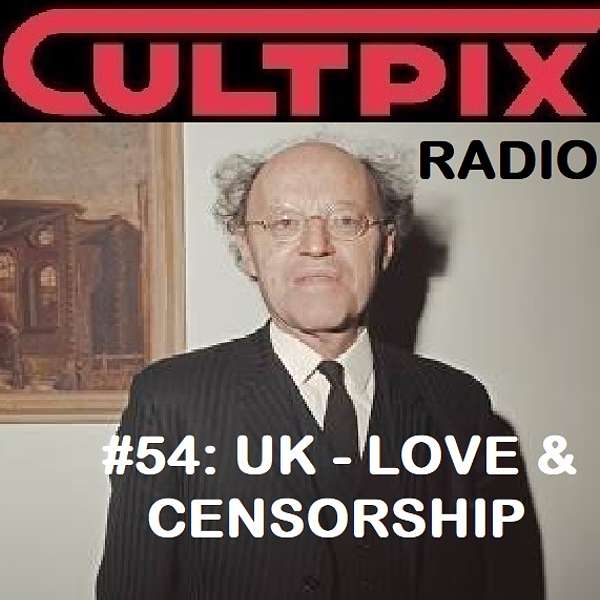
Cultpix Radio
Cultpix Radio (WCPX 66.6) is the official podcast of Cultpix, the global streaming service for classic cult and genre films and TV shows.
Cultpix Radio
Cultpix Radio Ep.54 - British Censorship and The Language of Love
Django Nudo and the Smut Peddler are joined by academic Dr. Retro (OK, not his real name), who specialises in film history and is an expert on British cult films and more.
The occasion is the 50th anniversary of the publication of the Longford Report on Pornography, an unlikely 520-page bestseller (no pictures) that argued for the banning of 'obscene' publications, films, plays and broadcasts, spearheaded by Frank Pakenham, aka the seventh Earl of Longford. The Swedish sex ed films "The Language of Love" (1969) and "More from the Language of Love" (1970) became test cases for what could and could not be shown in the UK.
As one critic pointed out at the time, ‘Nobody makes a sex-education movie like the Swedes. And nobody – but nobody – will make such a supercilious fuss about it more than the British Establishment.' There was particular tension between the British Board of Film Classification/Censors (BBFC), which advised whether a film should get a rating, and the Greater London Council (GLC), which decided for itself as the final arbitrator as to whether to show a film or not in its cinemas - representing one in seven screens across the UK.
Far from being censorship prone, the BBFC Secretary (i.e. Director) John Trevelyan and BBFC President Lord Harlech agreed that sex ed films should be accepted, even if they did not allow 'extravagant exploitation'. Trevelyan also engaged in exchanges with foreign distributors to try to understand the films and their social context better.
The BBFC passed the buck to local councils as to whether approve "The Language of Love" (1969), which the GLC passed with an 'X' certificate, meaning only over-16s could see it. By 1971 127 local authorities out of 169 that the films was submitted to had approved. But there was trouble ahead, according to Dr Retro's study:
"In July 1974 two plain-clothed policemen, Chief Inspector Smith and Police Sergeant Collins, entered the Jacey cinema on Charing Cross Road, where More About the Language of Love had already been playing to audiences five times a day for six weeks. According to Chief Inspector Smith’s account, ‘The cinema has a seedy air entirely in keeping with its clientele and the films they come to watch.’"
It is unusual to get a detailed. eyewitness report of cinema screenings and habits, but while historians can treasure this today, the result was that the film was accused of being 'criminally obscene'. It was the basis for the trial the following year, Regina v. Jacey (London) Ltd, Lionel Parsons and Fancey Associates Ltd, where the three charged was the Jacey Cinema, the programmer Fancey Associates and Lionel Parsons, the cinema manager. People were thus being prosecuted for screening a film that had been passed by the relevant authorities for public viewing. " If they were to be found guilty this case would have serious implications for the whole system of British film censorship.," Dr Retro notes the defence lawyer arguing.
Shockingly, the Crown WON the case, meaning that anyone could be prosecuted on the basis of 'obscenity'. This is where Lord Longford's 'report', or rather moral crusade, plays such a significant role.
We talk about the differences between Swedish and British censorship and the implications of the ruling. There is also sound clips from people on the streets (of Dublin) being interviewed about their views on pornography and a clip from the Festival of Light that demonstrated against pornography. We end with Cliff Richards, who marched against the "Language of Love" screenings under a banner proclaiming Sweden to be a hotbed of alcoholism, suicide, gonorrhoea, and pornography, b